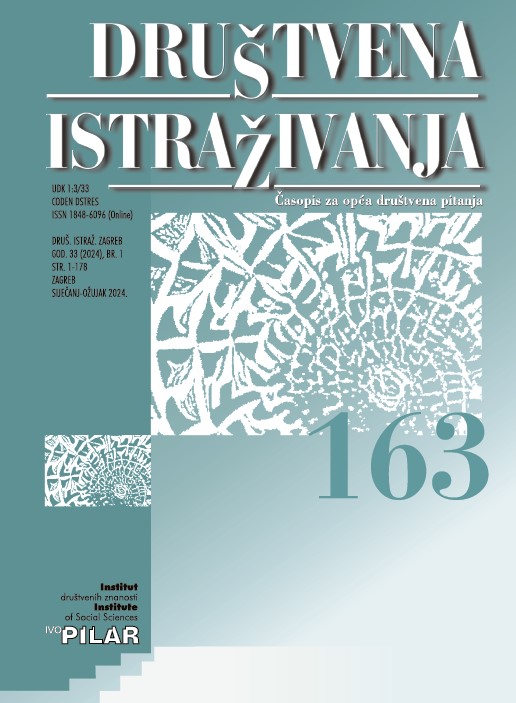PSIHOSOCIJALNE DETERMINANTE OBJEKTIVNIH I SUBJEKTIVNIH POKAZATELJA USPJEŠNOGA STARENJA
PSYCHOSOCIAL DETERMINANTS OF OBJECTIVE AND SUBJECTIVE INDICATORS OF SUCCESSFUL AGEING
Author(s): Ivana Tucak Junaković, Neala Ambrosi-Randić, Ivana MacukaSubject(s): Individual Psychology, Social psychology and group interaction, Behaviorism, Gerontology, Sociology of Culture, Welfare services
Published by: Institut društvenih znanosti Ivo Pilar
Keywords: successful ageing; optimism; resilience; adaptation to ageing; social support;
Summary/Abstract: Research into possible determinants of successful ageing is continuously growing, due to the increase in the proportion of old people in the general population, as well as the important practical implications that it has. However, the role of various psychosocial factors in the process of successful ageing is still not sufficiently clarified. The main goal of this study was to examine the contribution of a group of psychosocial factors (optimism, resilience, generativity, adaptation to the ageing process, social support and the frequency of social contacts) to successful ageing. The twofactor model of Pruchno et al. (2010) was used to measure the concept of successful ageing. The model includes the subjective and objective components of successful ageing. The research data were collected on a sample of 790 elderly and old men and women aged between 65 and 98 years. The results of hierarchical regression analyses have shown that the best predictors of subjective and objective indicators of successful ageing were age and psychological traits and resources (optimism, resilience, and good adaptation to changes in the ageing process). The applied value of these results can be found in the identification of factors that contribute to successful ageing and the quality of life of older people.
Journal: Društvena istraživanja - Časopis za opća društvena pitanja
- Issue Year: 32/2023
- Issue No: 3
- Page Range: 449-469
- Page Count: 21
- Language: Croatian

